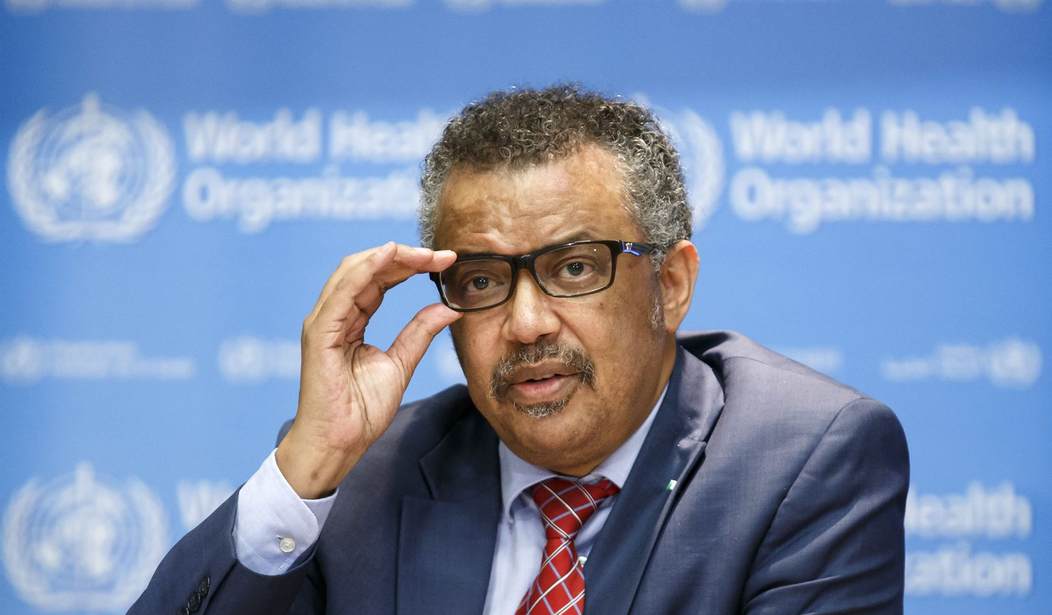World Health Organization Director-General Tedros Adhanom Ghebreyesus is fed up with all of the people in wealthier nations talking about booster shots while many underdeveloped nations still can’t get first doses for their people. He’s calling out the first world nations for ignoring their poorer neighbors, insinuating that countries like America are telling African countries that they’ll have to be satisfied with “leftovers.” No matter what the leading health organizations recommend, Ghebreyesus wants everyone to hold off on authorizing booster shots until 2022 and to start shipping more doses to the rest of the world. Oh, and he doesn’t care for the major pharmaceutical firms producing these vaccines making tons of money off of them, either. (Associated Press)
The head of the World Health Organization is calling on rich countries with large supplies of coronavirus vaccines to refrain from offering booster shots through the end of the year, expanding an earlier request that has largely fallen on deaf ears.
WHO Director-General Tedros Adhanom Ghebreyesus also said Wednesday that he was “appalled” at comments by a leading association of pharmaceutical manufacturers a day earlier who said vaccine supplies are high enough to allow for both booster shots and vaccinations in countries in dire need of jabs but facing shortages.
“I will not stay silent when companies and countries that control the global supply of vaccines think the world’s poor should be satisfied with leftovers,” he told a news conference in Geneva.
I’ll confess that my initial reaction to these types of complaints is generally one of annoyance. I understand how important this conversation is and fully acknowledge the need for wealthier, more developed nations with advanced pharmaceutical science capabilities to help out those who are less fortunate. But at the same time, at least when we’re talking about the United States, we were the ones who developed the leading vaccines and it was always obvious that we were going to take care of our own people first. Much like the emergency procedures in place on airlines, you put your own mask on before assisting anyone else or you might not survive to help the others.
Also, it’s not as if America hasn’t already been trying to take care of the rest of the world. As of last month, the United States had already shipped more than 110 million doses of the vaccines to 65 different countries. That’s roughly one-third of the nations of the world and it’s more donated doses than all other nations combined. Also, the rate that we’re shipping out doses to other nations is increasing as vaccination rates at home slow. If the boosters are approved and/or vaccinations are authorized for children under the age of 12 there will likely be another brief surge in domestic demand, but that shouldn’t last more than a few months.
At the same time, however, it’s clear that the chaotic nature of the vaccine distribution rollout has led to a terrible amount of waste. In the United States, we have already thrown away hundreds of thousands of doses that reached their expiration dates and spoiled. That number will likely climb into the millions by the beginning of next year.
But giving away the extra doses isn’t as easy as it may sound. The vials leave the manufacturing facilities in massive batches, but upon arrival at the state or city that ordered them they are quickly divided up and shipped to countless hospitals, pharmacies, and vaccination pods for storage and use. Collecting all of the unused vials back up for transport out of the country would be a logistical challenge that no one appears to have planned for or taken on.
Complicating matters further is the fact that the two most popular vaccines, Pfizer and Moderna, both have to be refrigerated at sub-zero temperatures during shipping. This creates significant challenges when you’re trying to get them to Subsaharan Africa or the interior of South America. It’s much easier to ship the AstraZeneca vials, but they have problems of their own. We’ll eventually wind up getting most of the world vaccinated just as we always end up helping everyone else, but it’s just going to take some time.
As for the WHO’s complaints about pharmaceutical companies “making deals with rich countries willing to pay top dollar,” I’m not sure what to tell them. They are businesses, not charities, and we are a capitalist nation. I know this drives the socialists at the UN crazy, but if these companies give all of their products away for free and go bankrupt, there won’t be any vaccines to ship to everyone. Seriously, we’re doing just about as much as we can, pal.








Join the conversation as a VIP Member